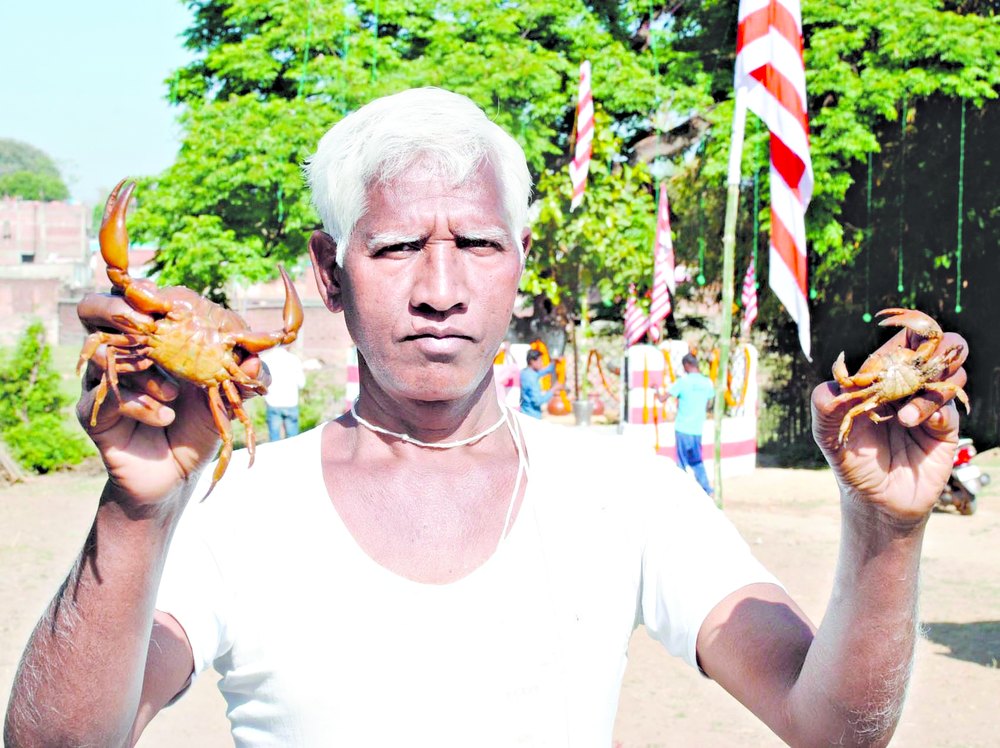
If tribal pahans, or priests, are to be believed, this year, the rains are likely to be delayed, but Jharkhand's share would be bountiful.
At an elevated platform, under the shade of a Sakhua (Saal) tree at Kendriya Sarna Sthal in Morabadi, Ranchi, head priest Jaglal Pahan carefully examines two pitchers he had placed around 7pm on Sunday, a day before their Sarhul festival.
Over the last 24 hours, the 52-year-old priest has been on a fast, a ritual that he goes through every year during this time when the tribals welcome the new year.
On Sunday, he performed a puja of the two pitchers, filled with water. Later, he distributed the holy water among villagers, sprinkled some on roads and places of worship and after filling the pitchers again, placed them back at the elevated platform near his house.
Celebrated on the third day of the month of Chaitra, Sarhul marks the beginning of the New Year. Tribals celebrate Sarhul by worshipping trees, particularly Saal, which at this time of the year, is in full bloom with flowers.
"The water level has not gone down. It has remained the same as before," Jaglal Pahan ruled after staring at the pitchers for long. "This is good news. The rains will be normal this year, though a bit late," he added.
There have been times, tribals will insist, when the water in the pitchers rose and even overflowed. That would have been a sign of abundant rains and a bumper harvest.
This year, since the water levels of the pitchers have neither gone up nor down, it is an indication from the gods that the state would get ample rains, though a bit late, explained Pahan.
The people, he assured The Telegraph, would, however, be bestowed with a fairly good harvest.
"How this happens, I am not aware. This is a tradition handed over to me by my forefathers. God speaks through events," said the head priest, for whom Monday was a busy day.
"I have caught a few crabs. Crabs are the first animals created by God. Other animals followed. At Sarna Sthal (worship place), I will hang a male and female crab, offer prayers and after smashing them up, mix the paste with paddy seeds that would be sown later in the year so that the people are blessed with a good crop," he said, explaining that the male and female crabs represented the marriage of earth with nature.
Jaglal Pahan spoke of the other age-old custom of catching some fish, which were also offered as prayer, smashed and mixed with paddy seeds.
"However, catching fish has become difficult nowadays as the rivulet that flows by my house is dry most of the year. So far, we have been fortunate about the crabs, but who knows for how long we will be lucky?" he sighed, adding that if that happened, they would have no option but to simply pray to the gods with folded hands and ask for a good harvest.

